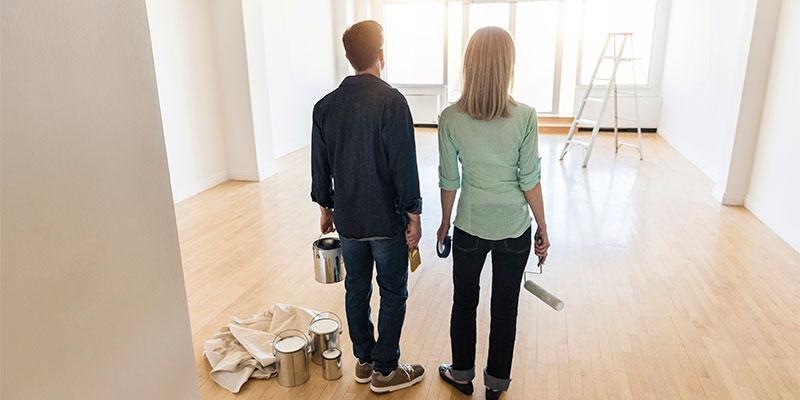
With plenty of DIY shows on television and online, buying a fixer-upper as your first home might seem charming—and most important, affordable. It’s true that you might be able to purchase more home for your money if you are willing to put in a little sweat equity and fix up a home to make it yours, but don’t take the task of tackling a fixer-upper lightly. Read on to learn what you need to know about buying a fixer upper so you can decide if this route is the right path to home ownership for you.
Know the Real Cost of the Home
A fixer-upper listing might have a tempting price point, but the upfront sales cost isn’t the true cost of the home. Depending on how much work needs to be done to get the home up to your standards—or even up to building codes—you could be looking at a lot of expenses. When considering a fixer-upper, it is important to know not just what you pay at closing, but the cost of renovations, too.
Don’t Forego an Inspection
If you are considering a fixer-upper, you might think you can save a little extra cash by declining a professional inspection during the due diligence period. After all, you’re going to be renovating it, right? Don’t fall for this common mistake! A home inspection is your first line of defense against expensive and unexpected repairs that might pop up once you own the home. A good inspector can find problems with a home that might be just too expensive or complicated for you to fix such as foundation issues or faulty electric or plumbing. Even more crucial, they can find issues that might pose a danger to you, your family and your investment.
Know Your Codes and Regulations
When you’re looking at a fixer-upper, you might just see a blank canvas perfect for making your own, but not so fast. City codes, homeowner’s association regulations and other rules may put a damper on your excitement. Before you buy a fixer-upper, do your research on what you can and cannot do to your home. For example, if you purchase a very old home in a historic district, the community may require that you use historic materials in your renovation—which can cost much more than modern materials. Make sure your dreams for your renovation line up with what you are allowed to do.
Focus on What Matters
Buying a fixer-upper is different from buying a move-in ready home in many ways, but that doesn’t mean that the same basic criteria of house-hunting don’t apply. Don’t get distracted by the charm and caught up in what the home could be before you look at the most important things about the home:
- Location
- Layout
- Condition
- Price
Get Proper Financing
Buying a fixer-upper can be a challenge, especially when it comes to financing your home. This is because you’re not just financing the house itself, but also the repairs needed to make it a home. The NC Housing Finance Agency offers the NC Home Advantage Mortgage™ with down payment assistance of up to 5 percent of the purchase price, which could give your down payment a boost and leave more money left over for renovations. What’s more, you may be able to apply for a 203k loan from the Federal Housing Administration, which will allow you to purchase a home while also financing the cost of the necessary renovations.
Buying a fixer-upper can be a challenge, but if you do your homework before you buy, it could be a great, affordable way to become a homeowner.
For more information on how the NC Housing Finance Agency can help make home ownership happen for you, visit www.nchfa.com/home-buyers.